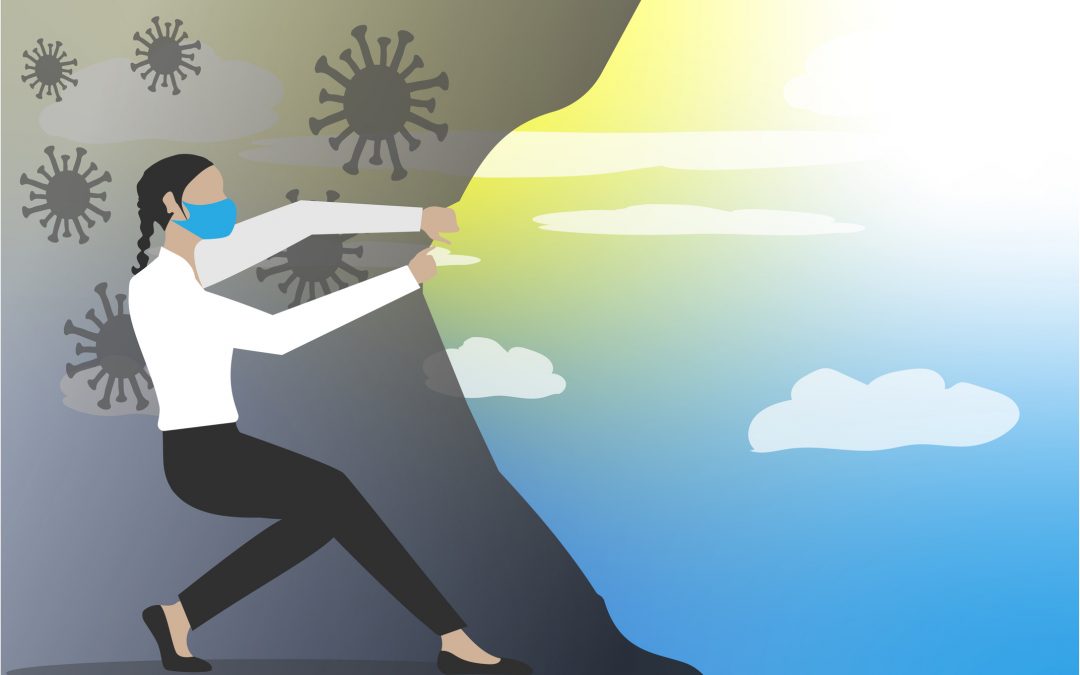People at work have experienced a very real and transformational year of exceptional learning;
Firstly; learning self-leadership
Secondly, learning about fast learning, the ‘hard way’.
Thirdly, learning about shortcomings of digital communication for real dialogue
Fourthly, learning alternative ways to connect with colleagues and professional network
Finally; learning from unprecedented amount of time for reflection and envisioning of future work and worklife
There is a temptation to discuss what worklife will be like after the pandemic as “waking up from a bad dream”. That is the situation in which, after shrugging off sketchy and disturbing memories, life can go on as before the dream. To be fair, this approach is as understandable as it is human. In fact, it is a mechanism of resilience which helps us to push on through difficult times.
On the face of it, there is much to suggest that working life will not have changed much and that eventually it will be very much back to ‘normal’. With the serious exception of a number of industries and their workforce that were hit severely by the pandemic, most sectors of the economy and workforce have performed as before, and many have even grown — as they probably would have done before Covid, too. And like before, the challenges facing companies seem familiar: increasing the rate of innovation, and improving the quality and the profitability of the work.
However, as leaders and developers mindful of the minds of others, we need to ignore simplified notions of “our organisations picking up from where they left off a year ago”. People at work have experienced a very real and transformational year of exceptional learning. Organisations are communities-of-knowledge, cultures that have lived through a series of learning-experiences of work. More importantly,
many of these experiences have kicked off steep and fast learning-curves of instant experimenting and of finding ways of making work flow. In the course of a year, the most popular new ways of work have become habits of individuals and often of whole teams. These thoughts, ways of working, and the stories and memories of how they were created, make up the ‘new’ knowledge that people will bring with them into the era of work after the pandemic.
Furthermore, linked to the new shared practises that have developed in teams and workgroups over the year, there are a number of individual-level learning experiences that have likely been lived through by many if not most people who have worked remotely. Based on our observations and early reports from our research-partners, at least the following insights from the pandemic year will affect individual behaviour at work going further:
Firstly, working remotely, employees have experienced, and become increasingly used to, “self-leadership”, to plan and lead themselves and their work and often without immediate coaching-support from their supervisor. Going into a ‘new normal’ work and management after the pandemic, many employees will expect to continue with a high degree of self-leadership, and expect to be encouraged and supported in developing their competence for it.
Secondly, people have learnt about learning, the ‘hard way’. They have witnessed and experienced how existing ways of working can be substituted fast, often literally overnight, through new ways and without long training-programmes and ‘change-projects’. Through leadership and people-development initiatives, as the pandemic now starts to subside, employees and teams should be helped to reflect on and realise their new insights about learning. This knowledge will then become a strength that enables accelerated learning and change in the organisation. It will also be an important narrative to help people realise something constructive and valuable has been learned.
Thirdly, people at remote work have experienced and become frustrated with shortcomings of digital communication in situations that require good dialogue and collaboration. That being said, there has been a lot of practise: People who have worked remotely since the start of the pandemic have experienced anywhere between 100 and 900 online meetings. They have become skilled, or in many cases very proficient for this mode of communication. Going further after the pandemic, these skills and experiences provide a good starting point for developing further the personal capacity for remote communication and collaboration. General programmes for skills development need to be substituted for personalised learning-paths that improve remote-working skills for collaboration and better interaction.
Fourthly, people have experimented and learned alternative ways to bond and connect with their colleagues and professional network, and some have likely discovered new, remote connections. The capacity for employees to connect with others is a feature identified by research as critical to successful company growth. Especially in the case of significantly increasing working-from-anywhere possibilities, this capacity needs to be further supported by development initiatives.
Finally, people working remotely have had an unprecedented amount of time for reflection and envisioning of how they wish their future work and worklife to unfold. And they have had the opportunity to experience and verify to what extent they cope even with the most solitary arrangements of remote work. Understanding and recognising the various motivations and perceptions that future employees have about their worklife future will be crucial, not least for companies requiring exceptionally hard-to-find talents.
It is impossible to foresee how the types of learning-experiences mentioned, in combination with many others, will impact specific individuals, teams and organisations in different contexts. But it is nonetheless useful to acknowledge that people have experienced working differently in the new ‘workday-reality’ — and for a long enough period to create at least some new routines. For leadership there is much more ‘new’ about the ‘new normal’ than simply working out whether to localise ‘work’ to the office, to ‘anywhere’, or ‘going hybrid’. As a result of the year of the pandemic, inside the organisation there is much ‘new’ knowledge, too. And there are new ways of learning.

